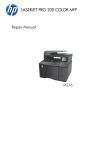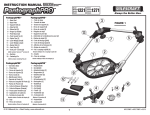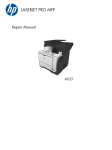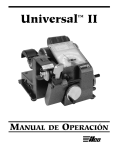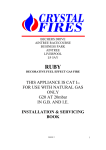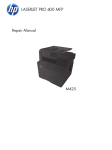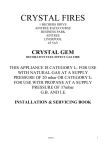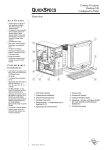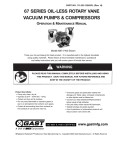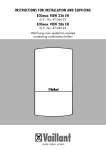Download crystal fires Cf2 Montana Specifications
Transcript
Cf2 MONTANA COAL EFFECT GAS FIRE Installation,maintenance & user instructions Hand these instructions to the user Natural gas (G20) at a supply pressure of 20mbar in G.B./ I.E Issue 1! 1 Contents Section 1 1.0 1.1 1.2 1.3 1.4 1.5! ! 1.6 1.7 1.8 1.9 2.0 Section 2 2.1 2.2 2.3 2.4 information and requirements appliance information ! conditions of installation flue and chimney suitability fireplace / surround suitability shelf position ! !! ! ! ! chimney inspection fireplace opening /catchment space fitting to metal flue boxes hearths spillage monitoring system remove glass and fire tray installing the fire installing the fire box Gas supply secure to fireplace gas tightness and inlet pressure Fitting fuel bed and commissioning assembling the fuel bed checking for spillage Maintenance servicing cleaning installer spare parts troubleshooting pilot problems Users instructions installation information manual users mertik remote control bray/sit remote control assembling the fuel bed cleaning glass troubleshooting help 3.1 3.2 4.1 4.2 4.3 4.4 5.1 5.2 5.3 5.4 5.5 5.6 5.7 !! Issue 1! ! ! ! ! ! ! ! ! page 3 4 4 5 5 5-6 6 7 7 8 8 9 9 9-10 10 11-12 13 14-15 15 15 15 16 18 19 21 22 23 24 ! 2 Section 1 Information and requirements 1.0 appliance information Model cf2 montana HE Gas type G20 natural gas Injector 340 Pilot type: SIT Max gross heat input : 5.2 kW Min gross heat input : 2.6 kW Cold pressure: 20.0 +/- 1.0 mbar Gas G20 : natural gas / cat I2H Firebox dimensions (including trim ) Width Height Depth Gas connection : 8mm compression at test elbow on fire supplied This appliance is manufactured by: crystal fires limited aintree racecourse business park aintree l9 5ay Issue 1! 3 Installation requirements 1.1 conditions of installation It is the law that all gas appliances are installed only by a competent person Ie:a registered installer in accordance with the current edition of the gas safety(installation and use )regulations or the rules in force.failure to do so could lead to prosecution The installer must be gas safe registered . The installation must also be in accordance with all relevant parts of the local and national building regulations where appropriate,the building regulations (scotland consolidation) issued by the scottish development department,and all applicable requirements of the following british standard codes of practice. 1. Bs 5871 part 2 installation of inset fuel effect fires 2. Bs 6891 installation of gas pipework 3. Bs 5440 parts 1 & 2 installation of flues and ventilation 4. Bs 1251 open fire place components 5. Bs 715 / BS EN 1856-2 metal flue pipes for gas appliances 6. Bs 8303 installation of domestic heating appliances 7. Is 813 domestic gas installation (republic of ireland ) No purpose made additional ventilation is normally required for this appliance ,when installed in G.B.when installing in I.E.please consult document I.s 813 domestic gas installation,which is issued by the national standards authority of ireland.if installing in northern ireland please consult local building regulations In scotland ,please consult the current edition of the building standards regulations,issued by the scottish executive.any purpose made ventilation must be checked periodically to ensure that it is free from obstruction. 1.2 Flue & chimney suitability This appliance is designed for use with conventional brick built or lined chimneys and and fabricated flues and metal flue boxes conforming to BS 715 /BS EN 1856-2 All flues must conform to the following minimum dimensions Minimum dimension of circular flues Minimum effective height of all flue types 125 mm 3 meters This product is not suitable for pre cast flues Issue 1! 4 1.3 Fireplace / surround suitability The fire must only be installed on a hearth it must not be installed directly on to a carpet or other combustible floor materials. (this appliance may be installed without a hearth when fitted as a hole in the wall and is fitted so the bottom of the appliance is installed a minimum of 300mm from floor level) This fire is suitable for fitting to a non combustible fire place surrounds and proprietary fireplace surrounds with a temperature rating of at least 150º C (class “o”) If this appliance is fitted directly against a wall without the use of a fire surround or fireplace all combustible materials must be removed from behind the trim .soft wall coverings such as blown vinyl ,wall paper etc, could be affected by the rising hot air scorching and /or discoloration may result ,due consideration should be made to this when installing or decorating. 1.4 Shelf position The fire may be fitted below a combustible shelf providing there is a minimum distance of 200mm above the top of the fire and the shelf does not project more than 150mm.if the shelf overhangs more than 150mm the distance between the fire and the shelf must be increased by 15mm for every 25mm of additional overhang over 150mm 1.5 Flue / Chimney inspection Before commencing installation ,a flue or chimney should be inspected to ensure that all of the following conditions are satisfied. 1.check that the chimney / flue only serves one fireplace and is clear of any obstruction .any dampers or register plates must be removed or securely locked in the open position 2.brick/stone built chimneys or any chimney or flue which has been used for an appliance burning fuel other than gas must be thoroughly swept .the base of the chimney /flue must also be cleared of debris etc 3.any under floor air supply to the fireplace must be completely sealed off 4.ensure that the inside of the chimney / flue is in good condition along its length and check that there is no leakage of smoke through the structure of the chimney / flue during and after the smoke pellet test 5.using a smoke pellet check there is an updraft in the chimney / flue and that the smoke can be seen coming from the terminal/ pot outside There must be no leakage of smoke through the structure of the chimney during or after the smoke pellet test and it is important to check the inside upstairs rooms adjacent to the chimney / flue Check the chimney pot / terminal and general condition of the brickwork and masonry.if the chimney / flue is in poor condition or if there is no up-draught do not proceed with the installation,if there is a history of down draught conditions with the chimney / flue, A tested and certificated flue terminal or cowl suitable for the relevant flue type should be considered 6.a spillage test must always be carried out during commissioning of this appliance Issue 1! 5 1.6 Fireplace opening and chimney catchment space The front opening of the fireplace must be between 400mm and 425mm wide and between 560mm and 570mm high.if the opening exceeds these dimensions then a surround must be constructed from suitable non - combustible material to produce correct size opening .any surround must be suitably sealed to the fireplace to prevent leakage See below fig 1 ! ! ! ! Fig 1 445 minimum 590mm minimum 570mm min 580mm max 410mm min 425mm max When installing into a brick built chimney,you must ensure that there is sufficient depth to accommodate any debris which may fall from the chimney ,this depth must be sufficient to accommodate 12 litres of volumetric space,minimum of 310mm Min depth required 310mm Void for flue debris appliance Issue 1! 6 1.7 fitting to metal flue boxes A DOUBLE WALLED SELKIRK RECESSED FLUE BOX BUILT TO THE REQUIREMENTS OF BS 715 OR BS EN 1856 WITH AN INSULATED FLUE HAVING A MINIMUM DIAMETER OF 125mm (5”) AND A MINIMUM EFFECTIVE OVERALL HEIGHT OF 3 METERS (10ft) 610mm 570mm 310mm 410mm RECESSED GAS FLUE BOX DIMENSIONS (NOT INCLUDING FIBRE GLASS INSULATION) NOTE THE METAL FLUE BOX MUST BE INSULATED WITH FIBRE GLASS OR EQUIVALENT TO A THICKNESS OF 50 mm. NOTE WHERE INSTALLATION IS FOR A METAL FLUE BOX, THE SURROUND MUST HAVE A TEMPERATURE RATING OF 150 DEGREES C . NOTE IF THE FLUE BOX IS TO BE USED WITH AN EXISTING BRICK OR STONE CHIMNEY A 125 mm (5”) MINIMUM DIAMETER FLUE LINER CONFORMING TO BS 715 MAY BE USED. NOTE A BRICK CHAMBER TO THE SIZES IN FIG 2 IN AN EXISTING BRICK OR STONE CHIMNEY A 125mm MINIMUM DIAMETER FLUE LINER CONFORMING TO BS EN 1856 MAY BE USED, PROVIDING IT IS SEALED AT THE TOP AND BOTTOM OF THE EXISTING BRICK OR STONE CHIMNEY. 1.8 Hearths This appliance must only be installed on to a non combustible hearth,the hearth material must be a minimum thickness of 12mm with the top surface at least 50mm above the floor,the hearth must be fitted symmetrically about the fire opening and have a minimum width of 760mm and a minimum Issue 1! 7 projection 300mm forwards from the opening 1.9 Spillage monitoring system This appliance is fitted with an atmosphere sensing device ,this is designed to shut off the appliance in the event of partial or complete blockage of the flue causing a build up of combustion products in the room in which the fire is operated The following are important warnings related to this spillage monitoring system 1.the spillage device must not be adjusted by the installer 2.the spillage device must not be put out of operation 3.when this device is changed (recommended yearly at service)only a complete original manufacturers part may be used ,it is not possible to replace individual parts on this device only a complete assembly can be used 2.0 remove glass and fire tray Remove 8 glass cover fixing screws 4 on each side ,left hand side shown above Lift glass panel out carefully ensuring not to damage it and carefully position in a safe place, The burner tray can now be removed by removing the two retaining screws at the bottom. Issue 1! 8 Section 2 installation of the fire 2.1 installing the firebox Check that the chimney / flue conforms to the required specifications as previously stated. If this is so continue with the installation 2.2 Gas supply It is recommended a concealed connection is made using semi rigid tubing on the rear left side of the appliance taking into account the requirements of B.S 6891 1988 dealing with enclosed pipes An isolating valve is built in to the appliance as part of the pressure test point elbow 2.3secure to fireplace The preferred method of fixing is cable fixing which is described in the following section Proceed as follows : Mark out and drill 4 off holes in the back face of the fire opening in the positions shown below fig 2 Fig 2 250mm Fireplace opening 500mm 250 mm 30mm Fit the wall plugs provided and screw the fixing eyes securely into the rear of the fire opening Uncoil the two fire fixing cables and thread one of each of the cables through the small holes either side of the top of the fire Position the fire carefully on the hearth ensuring the hearth is protected not to scratch any decorative surfaces ,thread each of the cables vertically downwards through the pair of fixing eyes on the same side of the fire ,then thread the free end of the cable through the hole at the bottom rear of the appliance (the fire tray will have to be removed to do this if not already) then carefully slide the fire into the fire opening and pull the cables tight Thread a tensioning screw over each of the cables and ensure that the tensioning nut is screwed fully up against the hexagon shoulder of the tensioning screw (this allows for maximum adjustment) Issue 1! 9 Fit a screwed nipple on to each of the cables and pull hand tight up against the tensioning screw then secure each nipple with a screwdriver Evenly tighten the tensioning nuts to tension both cables and pull the fire snugly to the wall Do not over tighten ,it is only necessary to pull the seal against the wall and make an air tight seal ,check there are no gaps behind the seal With the fire securely in place the gas pipe can now be purged ensuring no debris are in the pipework,otherwise serious damage can be done to the gas control valve on the fire. 2.4 gas tightness and inlet pressure Refit gas fire tray into fire box and screw it secure using two screws at bottom . Connect the gas supply to the inlet elbow and carry out a gas soundness test After ensuring gas soundness test remove the pressure test point from the inlet elbow and connect a manometer Turn on the appliance and turn to the full position Check that the gas pressure is 20.0 mbar +/- 1 mbar (8” water gauge +/- 0.4 in w.g.) Turn off the appliance remove the manometer and refit the pressure test point screw. Check the test point screw for gas tightness using a suitable leak detection fluid . Issue 1! 10 Section 3 Fitting fuel bed and commissioning 3.1 assembling the fuel bed PERIODICALLY SMALL DEPOSITS OF SOOT MAY GATHER ON THE FUEL BED AND BURNER, THIS MUST BE REMOVED BY REMOVING FUEL AND BRUSHING ANY DEPOSITS WITH A SOFT BRUSH AND VACUUMING THE BURNER, THEN REPLACE FUEL USING THE FOLLOWING PROCEDURE. THE MAIN FIBRE BASE IS LIABLE TO HAVE SURFACE CRACKS DUE TO THE HIGH TEMPERATURES OF THE FIBRE AND THE PAINT BEING DIFFERENT THIS IS QUITE NORMAL AND SHOULDN’T CAUSE CONCERN The rear matrix sits flat behind the two lugs With the front fibre sitting in the well of the burner Front 4 coals sit as shown Left hand coal sits with fatter end to left and as far left as possible Right hand coal sits slightly left from the far right Allowing 2 central coals to sit in middle Next 3 sit central as shown Issue 1! 11 Next 2 fit central as shown Final 3 sit central as shown Full operating instructions can be found at the users instructions Warning Only use the fuel pieces supplied with the fire and when replacing use only the same genuine replacement parts Under no circumstances add additional pieces Replace glass by inserting the glass piece with the glass seal towards the fire and ensure a good snug fit. Then replace the glass cover securing using all eight screws ,but do not over tighten. Warning Never use the appliance without the glass or if broken or cracked Issue 1! 12 3.2 Checking for spillage Checking for clearance of combustion products Close all doors and windows in room Light the fire and allow to run for approximately 5 minutes on high position After approximately 5 minutes hold a smoke match inside the diverter as shown below ,(it is recommended that a suitable smoke match holder is used when checking for clearance of combustion )most of the smoke must be drawn into the flue If in doubt repeat the test after the fire has been burning for 10 minutes If spillage persists ,the flue is not functioning correctly and a fault exists ,if after investigation the fault cannot be traced and rectified,the fire must be disconnected from the gas supply and expert advise obtained If there is an extractor fan fitted any where in the vicinity of the appliance ,the spillage test should be repeated with the fan running on maximum and all interconnecting doors open After ensuring that the fire is safe to use it should be left on high position to fully warm up during this time a slight odor may be noticed this is due to the newness of the fire and will soon disappear Fit trim and using 4 magnets on vertical flanges on fire box and fit fret centrally in front of fire Finally hand the installation and maintenance instructions to the user and explain the operation of the fire in detail Insert smoke match into Diverter as shown just Above glass cover Issue 1! 13 Section 4 Maintenance Servicing should be carried out annually by a competent person ,(gas safe engineer ) The service should include changing the oxypilot and visually checking the chimney and fire opening for debris,also carry out a smoke test to check for positive up draught in the chimney Check condition of coals and ceramics and if necessary replace the full set with genuine replacement parts After servicing a soundness test must be carried out and a working pressure test. 1 REMOVAL OF FUEL PIECES REMOVE LOOSE FUEL PIECES REMOVE FRONT FIBRE BASE REMOVE MAIN FIBRE BASE 2 REPLACEMENT OF GAS CONTROL REMOVE FUEL SET AS 1 DISCONNECT FIRE AT INLET ELBOW REMOVE FIRE TRAY BY UNSCREWING TWO SCREWS AT FRONT BOTTOM SECTION OF FIRE TRAY REMOVE CONTRO KNOB,DISCONNECT GAS CONNECTIONS TO VALVE INCLUDING PILOT CONNECTION AND THERMOCOUPLE CONNECTION REMOVE LOCKNUT HOLDING GAS CONTROL TO FRONT BOTTOM SECTION . RE ASSEMBLE IN REVERSE ORDER TURN ON GAS SUPPLY.CHECK FOR SOUNDNESS AND RE COMMISSION APPLIANCE 3 REPLACEMENT OF INJECTOR REMOVE FUEL PIECES SEE 1 REPEAT 2 REMOVE GAS CONTROL DISCONNECT GAS CONNECTION TO INJECTOR UNSCREW INJECTOR “B” WHILST AT THE SAME TIME HOLDING LOCKNUT WITH A SPANNER AND CLEAN OR REPLACE. SEE DIAGRAM BELOW. RE ASSEMBLE IN REVERSE ORDER TURN ON GAS SUPPLY. CHECK FOR SOUNDNESS AND RECOMMISION THE FIRE. REPLACEMENT OXY PILOT ASSEMBLY DISCONNECT FIRE AT INLET ELBOW REMOVE FIRE TRAY DISCONNECT THERMOCOUPLE AT GAS VALVE DISCONNECT GAS CONNECTION FROM PILOT ASSEMBLY Issue 1! 14 REMOVE IGNITOR LEAD FROM PILOT ASSEMBLY UNDO SCREWS SECURING OXY PILOT TO FIRE TRAY RE-ASSEMBLE IN REVERSE ORDER TURN ON GAS SUPPLY,CHECK FOR SOUNDNESS AND RECOMMISION APPLIANCE 4.2 Cleaning Before cleaning any part of the appliance ensure the gas is turned off and the fire is not hot Remove trims from appliance before cleaning by pulling it free from magnets Brass/chrome trim can be cleaned with brasso or other brass cleaner Colored finishes need wiping with a damp cloth Coals and ceramics : if for any reason it is necessary to remove coals or ceramics then before replacement the burner should be checked that no particles have deposited on to the burner and if necessary remove and refer to instructions to replace Ceramics should be cleaned by shaking any debris from them under no circumstances brush them or vacuum as this can be detrimental to them 4.3 installer spare parts Fuel bed Front fibre Trim Gas valve Gas valve mertik Gas valve bray Main matrix cf2 01 cf2 02 cf2 03(state color) cf204 (manual) cf205(mertik) cf206(bray) cf207 Other parts are available on request 4.4 trouble problems oxypilot manual cf208 oxypilot mertik cf209 oxypilot bray cf210 shooting pilot Troubleshooting pilot light Left above a correct blue flame right above a incorrect yellow flame With a strong flame not small aeration hole needs cleaning It is important the pilot flame stays strong and blue as on the left as it creates good cross lighting and no build up of gas then ignition which can be dangerous Issue 1! 15 Section 5 Users instructions 5.1 installation information 1.1 conditions of installation It is the law that all gas appliances are installed only by a competent person Ie:a registered installer in accordance with the current edition of the gas safety(installation and use )regulations or the rules in force.failure to do so could lead to prosecution The installer must be gas safe registered . The fire may be fitted below a combustible shelf provided that the shelf is at least 200mm above the top of the appliance and the depth of the shelf does not exceed 150mm The fire may be installed below combustible shelves which exceed 150mm deep providing that the clearance above the fire is increased by 15mm for each 25mm of additional overhang in excess of 150mm No purpose made additional ventilation is normally required for this appliance ,when installed in G.B.when installing in I.E.please consult document I.s 813 domestic gas installation,which is issued by the national standards authority of ireland.if installing in northern ireland please consult local building regulations In scotland ,please consult the current edition of the building standards regulations,issued by the scottish executive.any purpose made ventilation must be checked periodically to ensure that it is free from obstruction. If this appliance is fitted directly against a wall without the use of a fire surround or fireplace all combustible materials must be removed from behind the trim .soft wall coverings such as blown vinyl ,wall paper etc, could be affected by the rising hot air scorching and /or discoloration may result ,due consideration should be made to this when installing or decorating. If the chimney or flue has been used previously by appliances burning fuels other than gas they must be thoroughly swept prior to installation of this fire The fire must be registered by your installer to gas safe Please take time to read these instructions as you will be able to obtain the most effective and safe operation of this appliance Important safety information Warning This appliance has a naked flame and as with all heating appliances a fireguard should be used for the protection of children,the elderly and infirm.fireguards should conform to B.S. 8423 :2002 (fireguards for use with gas heating appliances ) It is important that this appliance is serviced at least once a year by a gas safe registered installer and that during the service the fire is removed from the fire opening and visually Issue 1! 16 checked for debris or blockages,the chimney should be checked for the clearance of flue products and the oxypilot replaced After installation or during a service a spillage test must always be carried out Rubbish of any type must never be thrown on to the fuel bed ,this could affect safe operation and damage the fire Any deposits and debris should be removed from the fuel bed periodically this may be carried out by referring to section 4.2 cleaning. Only the correct number of coals may be used and genuine replacement parts used Always keep furniture and combustible materials well clear of the fire and never dry clothing or items either on or near to the fire,never use aerosols or flammable cleaning products near to the fire when it is in use The ceramics and coals and glass remains hot for a considerable time after the appliance has been switched off so sufficient time should always be allowed for the fire to cool before cleaning etc Warning if the fire goes out or is turned off and it is necessary to relight the fire it is important to allow 3 minutes before attempting to relight it Issue 1! 17 5.2 OPERATING INSTRUCTIONS. MANUAL OPERATION THE APPLIANCE DATA BADGE IS POSITIONED ON THE FRONT BOTTOM SECTION OF THE APPLIANCE AND CARIES THE CONTROL KNOB POSITIONS.THE FULL LIGHTING PROCEDURE IS AS FOLLOWS. 1.PUSH CONTROL KNOB IN AS FAR AS POSSIBLE ON GAS CONTROL 2.TURN KNOB ANTI-CLOCKWISE TO IGNITION POSITION STILL KEEPING KNOB IN AS FAR AS POSSIBLE. 3.THE IGNITION BUTTON WILL IGNITE THE PILOT WITH THIS OPERATION KEEP THE KNOB PRESSED IN FOR 15 SECONDS.IF THE PILOT FAILS TO LIGHT TURN THE CONTROL KNOB CLOCKWISE TO THE OFF POSITION, WAIT 3 MINUTES AND REPEAT THE PROCEDURE 4.WHEN THE PILOT FLAME IS ALIGHT THE CONTROL KNOB SHOULD BE ALLOWED TO SPRING OUT SLIGHTLY.TURN THE KNOB FULLY ANTI-CLOCKWISE TO THE HIGH POSITION.THE PILOT FLAME WILL THEN IGNITE THE MAIN BURNER.THE PILOT FLAME CAN BE VIEWED TO THE RIGHT OF THE FIRE JUST BEHIND THE FRONT LOG SET 5.THE APPLIANCE CAN BE ADJUSTED BETWEEN HIGH AND LOW BY MOVING THE CONTROL KNOB TO SUIT,THE KNOB WILL NEED TO BE DEPRESSED SLIGHTLY TO MOVE FROM LOW HIGH AND IGNITION. 6.TO TURN THE FIRE OFF,DEPRESS THE KNOB SLIGHTLY AND TURN IT TO PILOT POSITION. 7.TO COMPLETELY EXTINGUISH THE FIRE DEPRESS THE KNOB SLIGHTLY AND TURN TO OFF POSITION. 8.SHOULD THE SPARK IGNITION FAIL TO OPERATE.TURN THE CONTROL KNOB TO THE OFF POSITION AND WAIT 3 MINUTES.TURN THE KNOB TO THE IGNITION POSITION AND THEN LIGHT THE PILOT WITH A TAPER.”LIGHTING THE PILOT WITH A TAPER IS AN EMERGENCY MEASURE ONLY AND THE APPLIANCE SHOULD BE SERVICED AS SOON AS POSSIBLE”.AND THEN PROCEED AS STATED IN PARAGRAPHS 2/7. IMPORTANT .THIS APPLIANCE IS FITTED WITH AN OXYGEN DEPLETION SENSOR INCORPORATED INTO THE PILOT BODY.SHOULD THE FIRE REPEATEDLY EXTINGUISH ITSELF THEN SPECIALIST ADVISE SHOULD BE SOUGHT,AS THIS MAY INDICATE SPILLAGE INTO THE ROOM OF COMBUSTION PRODUCTS. Issue 1! 18 5.3 MERTIK MAXITROL REMOTE CONTROL SYSTEM Fig 1 Off position A B On position Ignition /pilot position THESE INSTRUCTIONS ARE FOR THE USE ON CRYSTAL FIRES REMOTE CONTROL RANGE OF GAS FIRES OPERATION LIGHTING PROCEDURE 1. TURN KNOB A (FIGURE 1) SLIGHTLY LEFT TOWARDS THE IGNITION POSITION (SHOWN IN FIG 1 ABOVE) UNTIL REACHING STOP,PRESS DOWN AND HOLD FOR FIVE SECONDS (ONLY PILOT GAS FLOWS) 2. CONTINUE PRESSING DOWN KNOB A WHILE TURNING FURTHER LEFT TO ACTIVATE PIEZO,CONTINUE TO HOLD DOWN FOR 10 SECONDS AFTER PILOT HAS BEEN LIT,IF PILOT DOES NOT LIGHT,STEPS 1 AND 2 CAN BE REPEATED IMMEDIATELY. 3. UPON LIGHTING,RELEASE KNOB A AND TURN FURTHER LEFT TO ON POSITION (SHOWN IN FIGURE 1 ABOVE)PILOT GAS FLOWS AND MAIN BURNER FLOWS IN ACCORDANCE TO THE TEMPERATURE SETTING(KNOB B AS SHOWN IN FIG 1 ABOVE) ADJUSTING THE FLAME SETTINGS TO TURN THE FIRE ON AND/OR TO ADJUST THE FLAME STTING, PRESS THE ON BUTTONS ON THE REMOTE HANDSET.CONTINUE PRESSING UNTIL DESIRED FLAME SETTING IS OBTAINED.PRESS AND HOLD THE OFF BUTTON TO REVERSE THE SETTING.THE RECEIVER IS EQUIPPED WITH ABUILT IN DELAY, RECOGNISABLE BY THE FLICKERING LIGHT,TO FACILITATE FINE ADJUSTMENT OF THE FLAME THE MOTORISED VALVE IS EQUIPPED WITH A SLIP CLUTCH ,ALLOWING MANUAL ADJUSTMENT OF MAIN GAS BY TURNING KNOB B Issue 1! 19 ON TO PRESS ON YOU MUST PRESS TOP BUTTON AND SMALL BUTTON ON LEFT SIMULTANEOUSLY LOW AND OFF BATTERY BOX SHUT OFF PROCEDURE 1.TURN KNOB A RIGHT UNTIL REACHING STOP. IN THIS POSITION ONLY PILOT GAS FLOWS 2.TO SHUT OFF VALVE COMPLETELY,PRESS DOWN SLIGHTLY AND CONTINUE TURNING RIGHT FROM PILOT POSITION TO THE OFF POSITION.THE SAFETY INTERLOCK PREVENTS RE-IGNITION OF THE PILOT FLAME UNTIL THERMOCOUPLE HAS COOLED DOWN SUFFICIENTLY(ELAPSED TIME WILL VARY BASED ON THERMOCOUPLE TYPE) 3.SWITCHING OFF THE REMOTE IS NOT NECESSARY. THE SENSOR AND BATTERY HOLDER A INSERTED BENEATH THE RIGHT SIDE OF THE FIRE.TO REPLACE BATTERIES ALLOW FIRE TO COOL FOR AT LEAST 30 MINUTES THEN PULL OUT BATTERY HOLDER, THE COVER CAN SLIDE OFF AS ABOVE AND THE BATTERIES CAN BE REPLACED.(USE ONLY LIKE FOR LIKE ALKALINE AA BATTERIES) REPLACEMENT PARTS BATTERY HOLDER AND SENSOR REMOTE HANDSET Issue 1! CF2MERTIKHOLDER CF2MERTIKHANDSET 20 5.4 Bray/sit ACS2T remote control manual Flame level indicator On /off Up Down LIGHTING THE APPLIANCE - S.I.T. ACS2T REMOTE CONTROL IMPORTANT : IF THE BURNER IS EXTINGUISHED FOR ANY REASON YOU MUST ENSURE THAT YOU WAIT A FULL FIVE MINUTES BEFORE ATTEMPTING TO RELIGHT THE FIRE. The product is controlled by the remote handset supplied with the fire. Ensure the 3 off AAA batteries supplied in the loose items pack has been fitted to the handset and the 6 off AA batteries have been fitted to the battery holder located in the front of the fire before attempting to light it. Firstly turn the handset on and light the fire by pressing and holding the“ON” / “OFF” button on the remote handset for a minimum of 2 seconds, then releasing the button. The screen will illuminate and the “MAN” mode will be illuminated The 20 second ignition procedure is then initiated, the pilot and main burner will light. The remote handset is now used to control all functions of the fire. To turn the fire down or up incrementally, press the “DOWN” / “UP” arrows as shown above and the gas input will reduce accordingly. The flame level indicator will increase and decrease with the input. When maximum input is reached, a “MAX” icon will appear below the flame indicator in the top left hand corner. To put the fire into “STANDBY” mode (where only the pilot remains lit) press the “ON” /“OFF” button, the “PILOT” indicator will be shown and the main burner will extinguish. To turn the fire off, press and hold the “ON” / “OFF” button, this will extinguish all flames including the pilot. It is recommended that the handset is placed into locked mode when not in use. To lock the handset, press and hold the “MODE” button for a minimum of 5 seconds. To unlock the handset, press and hold the “MODE” button for a minimum of 5 seconds. Spare parts Acs2t handset cf2 bray/sit001 Issue 1! 21 5.5 assembling the fuel bed PERIODICALLY SMALL DEPOSITS OF SOOT MAY GATHER ON THE FUEL BED AND BURNER, THIS MUST BE REMOVED BY REMOVING FUEL AND BRUSHING ANY DEPOSITS WITH A SOFT BRUSH AND VACUUMING THE BURNER, THEN REPLACE FUEL USING THE FOLLOWING PROCEDURE. THE MAIN FIBRE BASE IS LIABLE TO HAVE SURFACE CRACKS DUE TO THE HIGH TEMPERATURES OF THE FIBRE AND THE PAINT BEING DIFFERENT THIS IS QUITE NORMAL AND SHOULDN’T CAUSE CONCERN The rear matrix sits flat behind the two lugs With the front fibre sitting in the well of the burner Front 4 coals sit as shown Left hand coal sits with fatter end to left and as far left as possible Right hand coal sits slightly left from the far right Allowing 2 central coals to sit in middle Next 3 sit central as shown Issue 1! 22 Next 2 fit central as shown Next 3 fit central as shown Warning Only use the fuel pieces supplied with the fire and when replacing use only the same genuine replacement parts Under no circumstances add additional pieces Replace glass by inserting the glass piece with the glass seal towards the fire and ensure a good snug fit. Then replace the glass cover securing using all eight screws ,but do not over tighten. Warning Never use the appliance without the glass or if broken or cracked 5.6 cleaning the glass To clean the glass panel,please remove it from the product,and use a clean damp cloth and ceramic glass cleaner to remove any stains or deposits from the glass Do not use scouring pads as this may scratch the surface finish of the glass panel Please note: The glass will need cleaning periodically ,condensation produced by the products of combustion will create marks on the inside face of the glass panel Spare parts Fuel bed cf2 01 Front fibre cf2 02 Trim cf2 03(state color) Main matrix cf207 Issue 1! 23 5.7 Troubleshooting help With todays homes having wooden floors dust can cause problems with gas fires please use your vacuum regular to keep your pilot light clean from dust,it is fitted with a gauze filter but if you can keep it clean it will assist with the long life of your fire Troubleshooting pilot light Left above a correct blue flame right above a incorrect yellow flame With a strong flame not small aeration hole needs cleaning It is important the pilot flame stays strong and blue as on the left as it creates good cross lighting and no build up of gas then ignition which can be dangerous Issue 1! 24

























